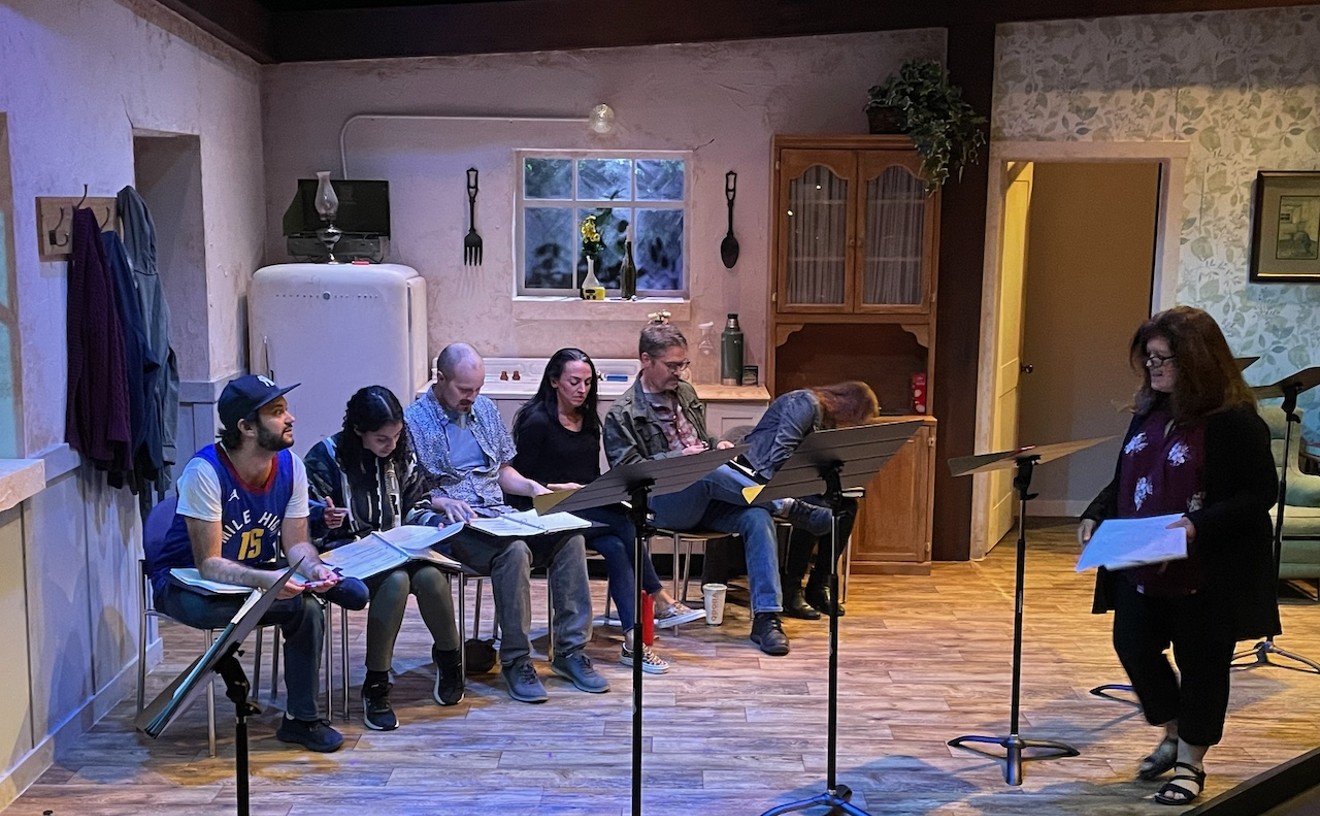In a recent conversation I had with rapper and activist B. Dolan, I asked him why he chose to write about issues that, on the surface, didn't affect him directly. He does a lot of work to bring to light the concerns of women, people of color, trans people and others outside of his own experience as a heterosexual white male. He explained to me that, as his audience is mostly dudes just like him, it's his duty to speak to them about what they might see as experiences and issues that don't affect them. Actually, I'll just let him say it:
"I don't think it is the job of people of color or trans people or women to explain themselves to men, and therefore, if I'm a man in a room full of men, what better thing could I be talking about? I'm not trying to speak for people; I'm trying to speak to people who are like me about ourselves and our relationship to the world around us."This Sunday, March 8, the world will be celebrating International Women's Day. When we talk about International Women's Day, we are also talking about feminism. Feminism is the social and political movement behind International Women's Day; it is the everyday way in which we can work to implement equality and human rights for people of all genders. In honor of this upcoming holiday, here are five ways you can be a better human toward women and female-identified people. Or, if you're not afraid of the word, here are five ways you can be a good feminist.
5. Educate yourself on feminism and women's Issues
The Internet and your local library are two free resources anyone can use to gather information about what feminism is and why it is relevant now more than ever. If you are one of those people who thinks that it is a woman's "job" to explain to you why feminism is an important and necessary tool for social equity and advancement, check yourself. I call this the #EducateMe syndrome — it is never an oppressed group's responsibility to tell others why they should not be oppressed.
Also, stop being afraid or repelled by the word "feminism." If this word is something that makes you uncomfortable, it is clear that you need to read up and educate yourself. It's about civil-rights issues for female-identified people, not about oppressing anyone else. Don't know what intersectional feminism is? Want to know what "mansplaining" means? Are you curious as to how you, a man, can be a feminist? Start by Googling it, not asking a woman.
4. Allow women to speak and be heard
One of the best ways to learn about a struggle or experience that you yourself cannot directly identify with is by actually listening to those who are directly affected. This doesn't just apply to academic conversations about feminism or serious interactions where people are being asked to speak up; it is about everyday conversation, too. If you are in a large group of people who are talking — maybe an office situation or a social engagement at a bar — watch and see how often the women in the group get talked over or shut down. It happens more often than you'd think. Once you become aware that it is happening, you have the power to disrupt the conversation and point out that a woman is not being heard. But fair warning: Doing this takes guts.
3. Create safe spaces (and a place) for women
Look, not every dude is a predator — that assumption itself is part of the larger issue of something we call rape culture, because it assumes all men are predatory. But also in rape culture, people (and very often, female-identified people) are taught that they can prevent violence toward them by not acting, dressing and talking certain ways. We are taught to avoid places and things that might make us "vulnerable" to someone else's motives of violence. This is simply not true — using a "date rape drug indicating" nail polish or wearing a pair of pants instead of a skirt is not going to protect a person from being assaulted or harmed. What is going to protect them is the perpetrator not assaulting them.
So what does this mean for you, dear person who doesn't assault people? It means creating safe spaces whereever you go. If you are walking down an almost-empty street late at night and you see a woman walking ahead of you, don't walk behind them — cross the street. If you are a group of dudes doing anything together, be aware of your own presence. As women, we are taught to to be small and to be quiet. Men are not — to see what I'm talking about, just browse through the Men Taking Up Too Much Space on the Train Tumblr to understand the privilege men are given regarding space. Don't be these guys.
2. Celebrate everyday feminism
Slowly but surely, feminism has been creeping into the mainstream for decades. Though we still have a long way to go, feminism is everywhere, but we still need champions of it. I mean, Madeleine Albright was the first female U.S. Secretary of State and the highest-ranking woman in the U.S. government, and that didn't happen until 1997. We still have no women represented on late-night television. The NFL, NBA and MLB still do not allow women to play. There are many instances politically, socially and pop-culturally in which women are still experiencing "firsts" — and it's something that needs to be talked about and celebrated. You don't have to be a woman to be excited that a woman is making a big step. We need everyone on this.
1. Don't be afraid of feminism
As I mentioned, some people — even women — don't "like" the word feminism. I can't think of a more irrelevant reason to not be a part of a social movement than disliking a word. If saying the word "feminism" makes you uncomfortable, imagine being a person who needs feminism because it allows him or her to have a platform to speak out and be heard. Being a feminist doesn't mean you are against anything except patriarchal oppression. And if there is anything I would be uncomfortable with, it would be the thought of aligning myself with a world history that has taught us that some humans are worth more than other humans. It's 2015. We don't have time for this mess anymore. Get with feminism, already.
Be my voyeur (or better yet, let me stalk you) on Twitter: @cocodavies











